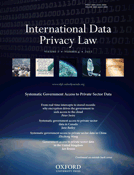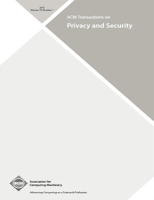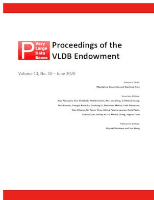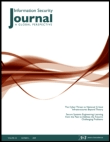
International Data Privacy Law
metrics 2024
Defining Standards in the Realm of Data Protection Law
Introduction
International Data Privacy Law, published by Oxford University Press, is a premier journal dedicated to advancing the understanding and application of privacy law in a rapidly evolving digital landscape. Since its inception in 2011, the journal has strived to provide a scholarly platform for the exploration of key issues in data protection, privacy rights, and regulation, making it essential reading for legal researchers, professionals, and students alike. With a commendable Q1 ranking in Law for 2023 and a notable position among the top tier of social sciences journals in Scopus, the journal establishes itself as a leading authority in the field, boasting a remarkable 94th percentile ranking out of 1,025 law journals. By publishing high-quality research articles, expert analyses, and policy discussions, International Data Privacy Law plays a crucial role in shaping the discourse around data privacy, ensuring that its audience stays informed about the latest developments and trends in this vital area of law. Explore the dynamic intersection of technology and law through our rigorous and insightful publications that continue to influence policy and practice across the globe.
Metrics 2024
 0.95
0.95 2.60
2.60 2.60
2.60 28
28Metrics History
Rank 2024
Scopus
IF (Web Of Science)
JCI (Web Of Science)
Quartile History
Similar Journals

Law Technology and Humans
Unveiling the Impact of Technology on Legal FrameworksLaw Technology and Humans is an innovative open-access journal published by Queensland University of Technology in Australia. Since its inception in 2019, it has emerged as a vital platform for scholarly discourse at the intersection of law, technology, and society, addressing pertinent challenges and advancements from 2019 to 2024. With categories spanning from Law and Social Sciences to Biotechnology and Information Systems, the journal caters to a diverse audience, achieving respectable rankings within its field—ranked #382 in Social Sciences (Law) and within the 62nd percentile in 2023. As a practitioner or researcher navigating the rapidly evolving landscape of tech law, Law Technology and Humans serves as an essential resource, fostering interdisciplinary collaboration and providing critical insights into the implications of technological innovation. By maintaining an open-access format, the journal enhances accessibility, promoting widespread engagement and knowledge sharing among academics, professionals, and students globally.

ACM Transactions on Privacy and Security
Empowering Innovations in Privacy and Security.ACM Transactions on Privacy and Security, published by the Association for Computing Machinery, is a prestigious journal dedicated to the field of computer science, with a particular focus on privacy and security in modern computing environments. Since its inception in 2016, this journal has become a vital resource for researchers, professionals, and students alike, addressing the increasing concerns surrounding data protection and risk management. With an impressive impact factor and recognition as a Q1 journal in both Computer Science (Miscellaneous) and Safety, Risk, Reliability and Quality, it ranks among the top publications in its field, positioned at the 73rd percentile in General Computer Science and the 71st percentile in Engineering. The journal’s Open Access options enhance accessibility to cutting-edge research, fostering collaboration and innovation in the rapidly evolving landscape of privacy and security. Readers can expect high-quality peer-reviewed articles that contribute significantly to both theoretical and practical advancements in technology and data security.

Asia Pacific Law Review
Shaping Legal Discourse in the Asia Pacific SphereWelcome to the Asia Pacific Law Review, a prestigious academic journal published by Taylor & Francis Ltd that serves as a vital resource for scholars, practitioners, and students in the field of law. With its ISSN 1019-2557 and E-ISSN 1875-8444, this journal critically examines legal issues pertinent to the Asia Pacific region and promotes scholarly discourse. Recognized in the Q3 category for law by the 2023 category quartiles, the Asia Pacific Law Review stands out with a Scopus ranking of #574 out of 1025, placing it in the 44th percentile within the Social Sciences _ Law category. Spanning from 2008 to 2024, the journal aims to present innovative research, policy analyses, and significant case studies that illuminate the evolving legal landscape in the region. While the journal does not offer Open Access, it remains an essential platform for high-quality legal scholarship, contributing to the advancement of legal knowledge and practice in the Asia Pacific area.

Proceedings of the VLDB Endowment
Fostering excellence in computer science research.Proceedings of the VLDB Endowment is a prestigious academic journal published by the Association for Computing Machinery, focusing on advanced research in the field of computer science, particularly in areas related to database management, big data, and information systems. With an impressive Impact Factor reflecting its Q1 categorization in the Computer Science (miscellaneous) quartile, the journal ranks #12 out of 133 in its field according to Scopus, placing it in the 91st percentile. The journal serves as a vital platform for disseminating high-quality research findings and fostering innovation in data management technologies. The VLDB Endowment, in operation since 2008, embraces an open-access model, ensuring that valuable insights reach a broad audience, including researchers, professionals, and students who are eager to push the boundaries of knowledge in computer science. With its commitment to excellence, this journal significantly contributes to the ongoing dialogue within the global research community.

COLUMBIA JOURNAL OF LAW AND SOCIAL PROBLEMS
Analyzing the Impact of Law on Social DynamicsCOLUMBIA JOURNAL OF LAW AND SOCIAL PROBLEMS is a distinguished academic journal published by the COLUMBIA JOURNAL TRANSNATIONAL LAW ASSOCIATION, dedicated to the intersection of law and social issues. Established in 1973, this journal serves as a platform for the exploration and analysis of socio-legal problems in the contemporary context. With its robust scope encompassing areas such as social justice, legal reform, and public policy, the journal appeals to researchers, professionals, and students alike who are engaged in critical examinations of the legal systems and their societal impacts. Although it is not an open-access journal, it maintains academic rigor as reflected in its Q4 ranking across various categories including Law and Sociology, indicating its commitment to disseminating scholarly work that contributes to ongoing discussions in these fields. The journal’s address at Columbia University School of Law in New York situates it within one of the leading centers for legal scholarship, making it an essential resource for those seeking to deepen their understanding of law's role in addressing social problems.

IOWA LAW REVIEW
Shaping the future of law with thought-provoking articles.IOWA LAW REVIEW is a prestigious legal journal published by the University of Iowa College of Law, dedicated to advancing the discourse in the field of law. Since its inception, this journal has become a vital resource for legal scholars, practitioners, and students, committed to publishing rigorous and thought-provoking articles that address contemporary legal challenges. With a strong emphasis on contributions from a diverse range of legal fields, including constitutional law, criminal justice, and property law, the IOWA LAW REVIEW maintains a Q1 ranking in law, reflecting its significance and influence on legal scholarship globally. While the journal is not currently open access, it provides critical insights and perspectives that are essential for understanding the evolving landscape of law. Additionally, with its ranking of #314 out of 1025 in the Scopus database, the journal demonstrates a high impact within the legal community. Scholars and practitioners alike are encouraged to engage with its scholarly articles, as they not only highlight key legal issues but also propose innovative solutions to complex societal problems.

Revista Boliviana de Derecho
Advancing Legal Scholarship for a Changing SocietyRevista Boliviana de Derecho is a prominent academic journal dedicated to the exploration and dissemination of legal studies, particularly focusing on the issues pertinent to Bolivia and Latin America. Published by Inst Derecho Iberoamericano, this journal serves as a vital platform for researchers, legal professionals, and students to engage with contemporary legal theories and practices. With its ISSN 2070-8157 and E-ISSN 2706-8080, the journal adheres to high academic standards and aims to contribute significantly to the advancement of legal scholarship in the Spanish-speaking world. Although it operates within a closed access framework, its publications are crucial for understanding the evolution of legal frameworks and their implications in a rapidly changing society. By providing a convergence of diverse legal opinions and analyses, Revista Boliviana de Derecho remains an essential resource for anyone invested in the field of law.

Revista General de Derecho Canonico y Derecho Eclesiastico del Estado
Fostering Dialogue Between Sacred and Secular Legal RealmsRevista General de Derecho Canonico y Derecho Eclesiastico del Estado, published by IUSTEL, serves as a pivotal platform for scholarly discourse and analysis in the fields of canon law and ecclesiastical state law. With a dedicated focus on the intersection of religious and civil legal frameworks, this journal provides researchers, practitioners, and students with rigorous peer-reviewed articles that contribute to the understanding and development of these critical areas of law. Although the impact factor is not specified, the journal's commitment to high-quality scholarship positions it as an essential resource for professionals and academics alike. As an open access publication, it ensures wide dissemination of its content, fostering an inclusive environment for intellectual exchange. Based in Madrid, Spain, the journal invites contributions from a diverse array of legal scholars, aiming to bridge the gap between canonical and secular legal perspectives, thereby enhancing global dialogue on these significant topics.

Transactions on Data Privacy
Empowering Researchers in the Data Privacy ArenaTransactions on Data Privacy is a leading academic journal dedicated to the vital exploration of data privacy issues within the realms of software and statistics, published by the Instituto de Estudios Documentales Ciencia y Tecnología (IEDCYT). With an ISSN of 1888-5063 and E-ISSN of 2013-1631, this journal has steadily garnered respect in the academic community, achieving a Q2 ranking in both Software and Statistics & Probability categories as of 2023. The journal serves as a crucial platform for researchers and practitioners to publish innovative findings and propose new methodologies pertinent to safeguarding data privacy, reflecting the increasing importance of this topic in today's digital landscape. Spanning from 2009 to 2024, it aims to bridge theory and practice, while its substantial Scopus rankings, particularly in Mathematics and Statistics (Rank #84/278), signify its influential contribution to the field. By fostering an open dialogue on current challenges and advancements, Transactions on Data Privacy continues to play a key role in advancing knowledge and implementing practical solutions in data privacy.

Information Security Journal
Exploring Innovative Solutions in Cybersecurity.The Information Security Journal, published by Taylor & Francis Inc, is a pioneering platform dedicated to disseminating knowledge in the realms of information security, computer science applications, and information systems management. With an ISSN of 1939-3555 and an E-ISSN of 1939-3547, this journal has successfully carved its niche within the Q2 quartile of the 2023 rankings for both Computer Science Applications and Information Systems and Management, while also being recognized in Q3 for the Software category. Located in the United Kingdom, the journal has been committed to advancing research and fostering innovation from 2008 through 2024, making it an essential resource for academics and professionals alike. With a significant Scopus ranking in its fields—placing 43rd out of 148 in Decision Sciences and 271st out of 817 in Computer Science Applications—the journal stands as a vital source of interdisciplinary insights. Although it does not currently offer open access options, the quality of publications and the journal's dedication to the field ensure that it remains a compelling choice for researchers seeking to publish their findings or stay abreast of current developments in information security.